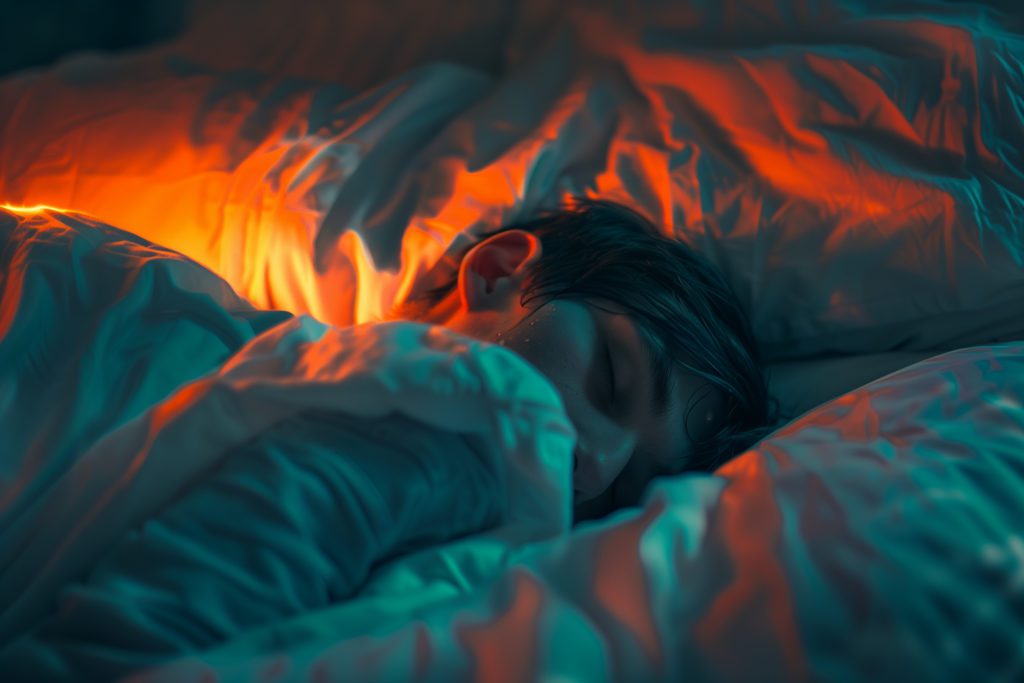
How Does the Change to Autumn Affect Sleep Patterns?
The change to autumn can affect sleep patterns in many different ways. We sleep longer during the fall. REM sleep increases and deep sleep decreases.

As the summer turns into fall, the nights are getting cooler, the air is crisp, and leaves are turning beautiful golden colors. But, amid all of this, you might notice that you are feeling more tired than normal. Yes, it does have to do with the changing season. The transitions between seasons affect everything from sexual behavior to sleep.
How does fall affect your sleep? Studies have found that humans experience changes in sleep patterns in response to seasonal changes. When the amount of sunlight changes from season to season, it causes our 24-hour clock or circadian rhythm to get out of whack. This results in disrupted sleep patterns.
While it’s evident that the changeover to fall does affect sleep, it’s good to look at how it influences sleep and how to adjust to the changing season.
Things That Affect Sleep in The Fall
Here are some of the things that impact sleep in the autumn.
Daylight
One of the main reasons why sleep patterns change in the fall has to do with the decreasing levels of daylight. Light significantly influences melatonin, a hormone produced by the pineal gland that regulates the circadian rhythm or sleep-wake cycle. As days get longer, melatonin levels fall.
Colds and Flu
As soon as the fall leaves start changing colors, you know what that means — it’s time for the flu season. The flu and cold season starts in October. Every year, it’s the same — sneezing and a runny nose. Nothing interrupts sleep quite like an unrelenting cough or stuffy nose.
Changes in Your Sleep Cycle During Autumn
Researchers have found that there are seasonal changes when it comes to the sleep cycle. In a study published in Frontiers in Neuroscience, it was found that participants got 40 minutes less slow-wave or deep sleep during the fall months compared to other times of the year. In addition, participants' rapid eye movement (REM) sleep, which is the stage of sleep when we dream, was 30 minutes longer during the cooler months. These changes are likely due to interruptions in the circadian rhythm.
Why You Sleep More in The Fall
Studies have found that people sleep about an hour more per night in the fall and winter than in the summer. Here are some of the reasons why we feel more sleepy in the autumn.
Increased Melatonin Production
As the days become shorter, and the darkness moves in, we produce more melatonin, which is a hormone that regulates your sleep cycle and makes you feel sleepy. The increase in melatonin can make you feel more tired than usual or sluggish.
In addition, people tend to spend less time outdoors during the fall, as it’s getting cooler. They are then exposed to less sunlight, which increases melatonin production, as well.
Seasonal Affective Disorder (SAD)
Seasonal affective disorder (SAD) is another factor that may lead to increased sleep in the fall. This is a form of depression that occurs during the fall and winter time. It can affect sleep and cause fatigue and sleepiness. A study published in the Archives of General Psychiatry found that people diagnosed with SAD had increased levels of melatonin production during the winter months compared to summer. This can increase the amount of time a person spends in bed.
If you do have SAD, it’s important to talk to your doctor about treatment. Light therapy and other therapies can be very effective and may help with sleep.
What Can You Do to Adjust?
As the summer fades into fall, it’s important to adjust your sleep habits to account for the difference in sleep needs during the autumn. Here are some simple things you can do to help adjust your sleep to the changing season.
- Slowly adjust your sleep-wake times - During the fall, you’ll want to go to bed a little earlier to account for the increased sleep that you need. Several days or a week before the time change, shift your bedtime and wake-up times in small 15-minute increments.
- Spend time outdoors - Sunlight is important to regulate your body’s circadian rhythm. Get natural light during the morning hours. Getting light during the morning will give you a boost of energy. It will also trigger your body to stop making melatonin. Aim to spend at least 15 minutes a day outdoors. This can help reduce the fatigue that often accompanies time changes.
- Get enough rest - Being sleep-deprived can make the transition to fall harder. It can also increase the risk of chronic health conditions like diabetes, high blood pressure, and obesity. Therefore, make sure you are
getting between seven to nine hours of sleep a night. - Don’t sleep too much - As the weather turns cooler, it might be hard to get out of bed in the morning but don’t give in and sleep too much. Oversleeping can cause sleep inertia, which can result in lethargy the next day. Most people need between seven to nine hours of sleep a night during all seasons.
- Don’t neglect exercise - Exercise has a direct positive effect on sleep quality, say experts. It might be easier to exercise when it’s warm and sunny outside, but it’s just as important to work out during the cooler months, as well. That will help you drift off more easily to sleep.
- Avoid napping in the late afternoon - It’s normal to feel more fatigued than normal during the transition to fall. However, resist the urge to nap in the late afternoon or later because it can make it harder to fall asleep at night. A short power nap earlier in the day is fine.
Sleeping Well During The Cozy Fall Season
As the days get shorter and cooler, the amount of sleep we need increases. Less sunlight during the day is one of the reasons why we crave more sleep in the fall. It’s important to adjust your sleep habits to the changing season. This will help you get better sleep. And, sleep is a critical part of your overall well-being. Proper sleep promotes healing and healthy body function.
FAQ
Why do I feel the urge to nap more often in the fall?
The shorter days and longer nights can trick your body into thinking it’s time to sleep more often. Increased melatonin production and a cozier environment can also make naps more tempting!
Is it normal to wake up groggy in the fall, even after a full night's sleep?
Yes! Seasonal changes can disrupt your circadian rhythm, making mornings feel extra sluggish. Less sunlight exposure also affects serotonin and melatonin levels, leading to grogginess.
Why do I wake up in the middle of the night more often in the fall?
Temperature changes, increased melatonin levels, or even congestion from fall allergies can make you more likely to wake up at night. Keeping a stable sleep environment can help.
What’s the best way to adjust to the time change in the fall?
Gradually shift your bedtime by 15-minute increments a few days before the clock changes, get morning sunlight, and avoid bright screens at night to help your body adjust.
Why do I feel more emotional or nostalgic in the fall, and does that affect my sleep?
Seasonal changes can trigger emotional shifts due to lower sunlight exposure and increased melatonin production. Nostalgia and a sense of slowing down can also influence mood and sleep.
Why do rainy autumn nights make me sleep so well?
The sound of rain creates white noise, which helps drown out distractions. Plus, cooler, moist air can make breathing easier and promote deeper sleep.

Written by
Emily Mendez
Emily Mendez is a former therapist and mental health author. She is one of the leading voices in mental health. Emily's writing has appeared in eCounseling, SonderMind, and more. Emily is frequently interviewed by Healthline, Fatherly, INSIDER, Family Circle, and other national media for her advice and expert opinion on the latest mental health topics.
Download Pillow
Get help
Press & News
Legal
Connect
X (Twitter)
Company
Copyright © Neybox Digital Ltd.



